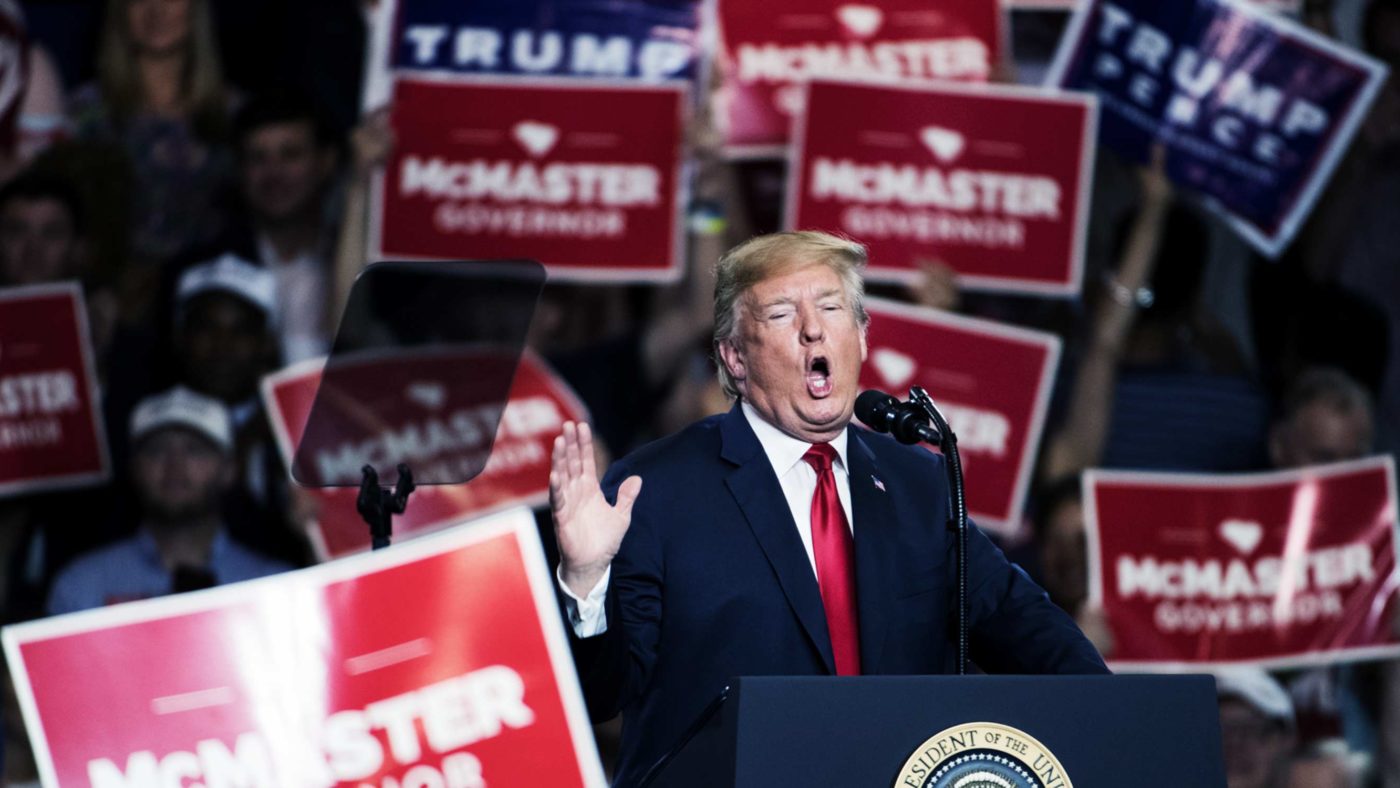“In ways that evoke memories of the 30s, frustrated and disaffected voters may turn instead to strongmen.”
So intoned former US vice-president Joe Biden last week, in the sort of warning that has become de rigueur when talking about America’s current political climate as well the rise of populists across Europe. Similarly, the ex-CIA director Michael recently tweeted a picture of Birkenau beneath the words “Other governments have separated mothers from their children”.
Pundits too are not exactly immune from this revamped version of Godwin’s Law – the idea that any internet debate will ultimately degenerate into some kind of Nazi/Hitler comparison. As the border separation furore raged on, American commentator Donny Deutsch claimed Trump voters were “standing at the border like Nazis going, ‘You here. You here.’”
Others make more sophisticated arguments, but still, like Basil Fawlty, can’t resist the lure of the Second World War. In recent columns, both the Guardian’s Jonathan Freedland and the FT’s Edward Luce say they hear “echoes” of the 1930s in the present day, without going as far as to say what about our contemporary politics is actually similar.
There are a number of problems with the 1930s claims. First, there are the obvious, enormous differences between the middle of the last century and the second decade of this one. For a start, we are vastly better off as a species than ever before, with many, many more people living under democratic governments than has ever been the case. As the likes of Stephen Pinker have pointed out, we are (generally) significantly healthier and less likely to experience war or violence. Put simply, if you had to choose a time and place in history to be born, the West in the 21st century would unquestionably be your best option.
This is a point made eloquently by the Cambridge academic David Runciman, who says the idea of basing our perceptions of the present on the 1930s are misguided “because our societies are completely different”. In Runciman’s view, democratic failure will look very different in our rich, ageing societies compared to those of our grandparents’ generation. His new book, How Democracy Ends, argues that rather than looking backwards, we’re better off examining countries such as Japan and Greece for what kind of future might await us.
As he told Slate in a recent interview: “What does democratic failure look like in a society where most people are over 40, over 45, where the per capita GDP is $40,000 plus, where, for all our scare stories about violence, our actual experience of violence, particularly political violence, is very, very low? It’s another world, and nothing like the 1930s.”
That’s probably why columnists and politicians resort to words like “echoes”, rather than claiming a direct comparison between now and then.
It also cheapens the memory of Holocaust victims to compare the situation at the Mexican border – dreadful though it is – to their ordeal. It’s a crude device, calculated to both offend and generate attention, which accounts for its popularity in the hyper-competitive online media market. Underlying the Godwin’s Law tendency is a pervasive refusal to differentiate A Bad Thing from a complete catastrophe. We see the same phenomenon in our own highly polarised debate on Brexit, which is either a glorious popular revolt or a national catastrophe, depending on which partisan you happen to like the flavour of.
All of which is to say that while some of the rhetoric of Trump, Viktor Orban or Italy’s deputy prime minister Matteo Salvini might resemble history’s worst demagogues, that’s where the comparisons start to run out of steam. It is quite enough to criticise the anti-democratic developments in Hungary, Poland or Turkey without hinting that fascism lurks around the corner.
As for Trump, the idea that he is a “strongman” doesn’t stand up to much scrutiny. For one thing, his administration is almost laughably ineffective, as has been amply reported on by the remarkably unmuzzled American media. What’s more, as we’ve seen on many occasions, the president is constrained by Congress, the courts and public opinion – as demonstrated by last week’s screeching U-turn on child separation.
Nor is this kind of overblown argument likely to be terribly effective. However much you abhor the US president, telling his voters that they are on a par with the executioners of Auschwitz is unlikely to win over any converts. Indeed, it is far more likely to harden the same sentiments that drove them to him in the first place. We hardly need reminding of the foolishness of Hillary Clinton’s “deplorables” comment during the presidential election campaign.
None of this is to say we ought not to be concerned about racially charged political sloganeering, or attempts to quash legitimate criticism. Developments in countries such as Poland, Hungary and Turkey give all those who support liberal democratic values pause for thought. But the answer lies in facing up to the world as it is now, not relying on the kind of hyperbole in which the populists themselves revel.


